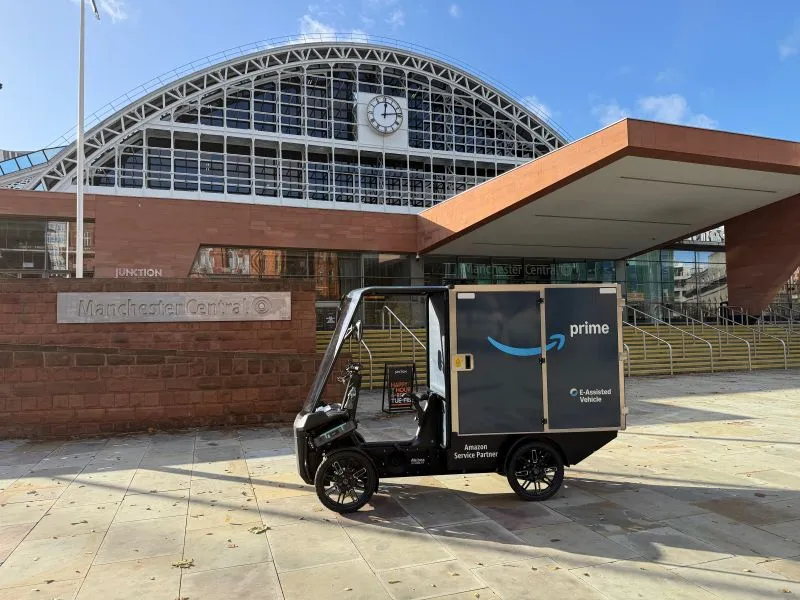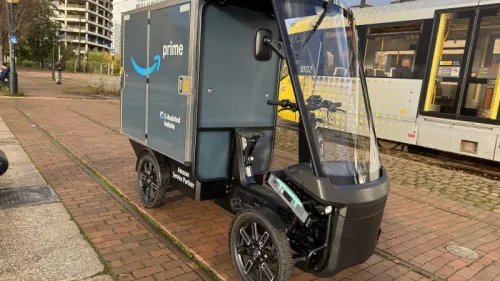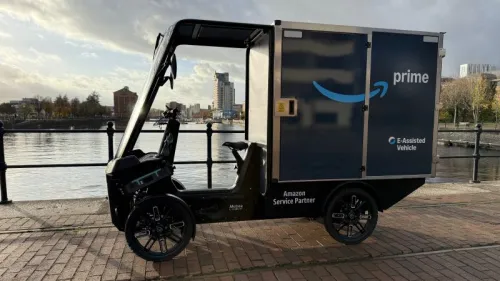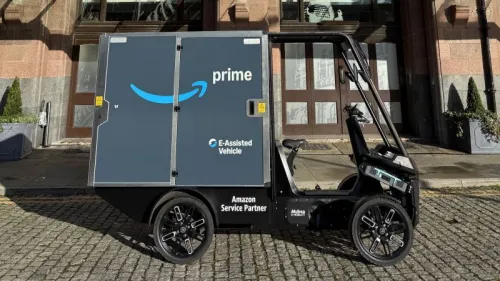eCargobike in Everyday Testing: 14 Miles Through Manchester
On a sunny winter day, Rob Galkoff, Amazon DSP Owner, took the opportunity to test one of Mubea U-Mobility’s eCargobikes on an extensive tour through the city. His route led from Trafford Park directly into the city centre, onward to Piccadilly, then to the BBC in Media City, and finally back again. In total, he covered around 14 miles and gathered numerous valuable insights from everyday riding.

Many cycle paths – but not always where they are needed
Rob reports from his riding experience that Manchester does have a large number of cycle paths, but their implementation is not always ideal. Some run on the road, others on pavements, and some even have their own traffic lights for cyclists.
Challenges he encountered along the way are familiar to many urban riders:
- lack of cycle-path etiquette: more foot traffic and motor vehicles than cyclists
- street furniture that obstructs larger electric cargo bikes
- narrow passages that require reversing
- construction sites with insufficient guidance for cyclists
- tradespeople and delivery vans parked flexibly and often inconveniently
- navigation apps that provide only limited reliable routing for cyclists
His conclusion: the infrastructure is usable, but improvements are necessary — especially for larger commercial eCargobikes.
Why electric cargo bikes still have clear advantages
Despite these challenges, the report clearly shows the benefits that electric cargo bikes, such as the Mubea Cargo, bring to urban delivery operations. Especially in dense city centres, their strengths become apparent. They are:
- more manoeuvrable than transport vans
- easy to park, even in tight spaces
- emission-free
- ideal for last-mile deliveries
While delivery vans are often stuck in traffic or unable to find parking, electric cargo bikes reach their destinations more quickly and contribute to reducing the urban carbon footprint.
Looking ahead: A growing fleet for Manchester
As Rob reports, the team on site continues to grow — and with it, the fleet of electric cargo bikes. A total of 20 vehicles are already in operation. This marks an important step towards managing the increasing delivery volumes during peak season efficiently and sustainably.
Importance for cities and the mobility transition
The experience clearly illustrates the growing relevance of cargo bikes in today’s urban logistics. At the same time, it highlights the need for cities to further adapt their infrastructure to support the increasing demand for sustainable mobility.
Major cities such as London, Berlin, Amsterdam, and Copenhagen have been investing in high-quality cycling infrastructure for years — with positive effects on safety, traffic flow, and emissions. Manchester, like many other cities, is moving in the same direction.
The trend toward more cycling and the commercial use of electric cargo bikes is unmistakably positive. To fully leverage this development, continuous investment in cycle paths, traffic planning and urban design is essential. eCargobikes can play a significant role here — provided that the supporting conditions continue to evolve.
The full report can be viewed on LinkedIn:
https://www.linkedin.com/feed/update/urn:li:activity:7396994575065653248/


